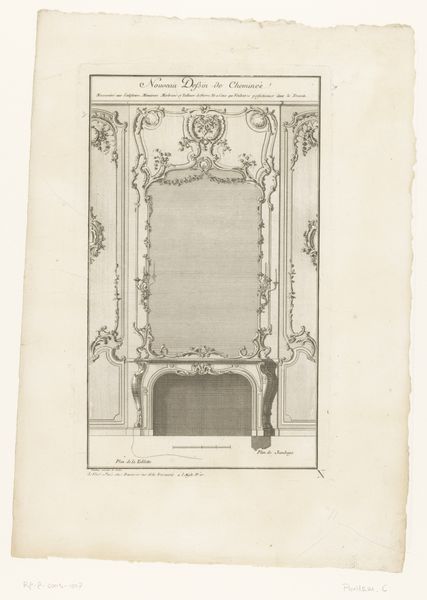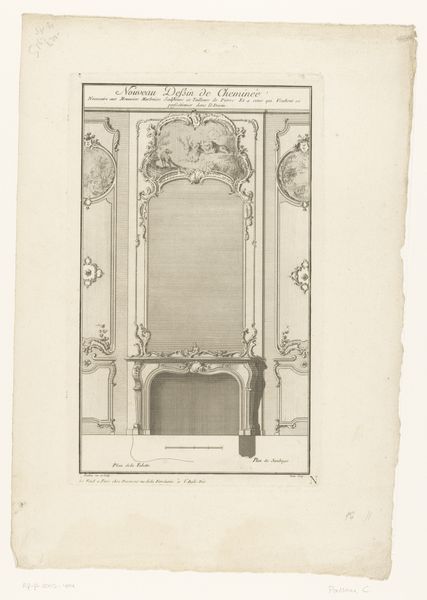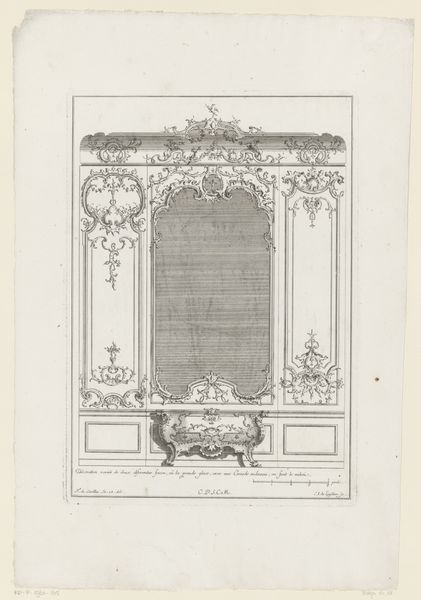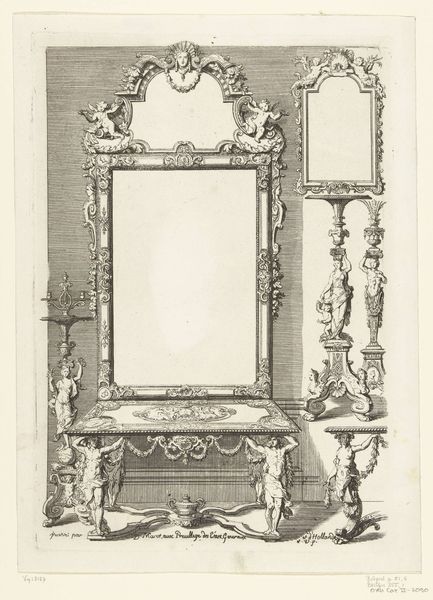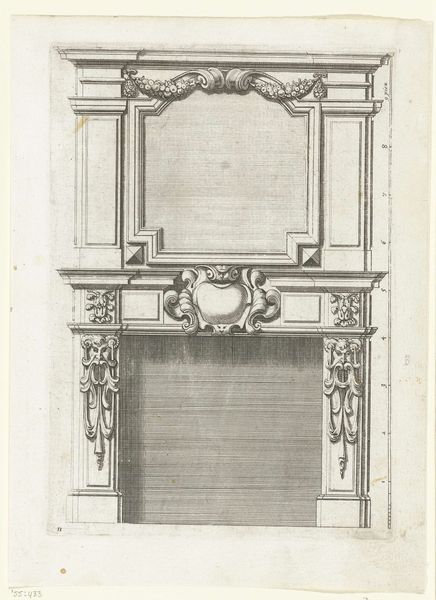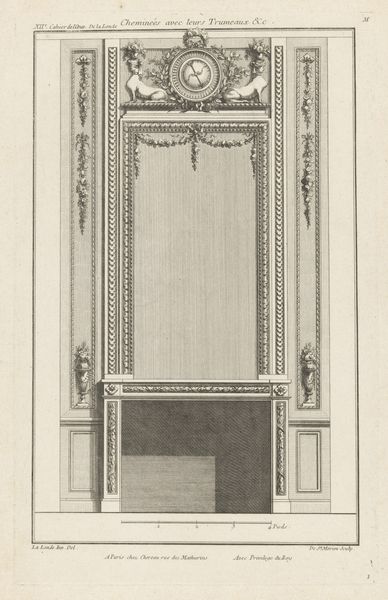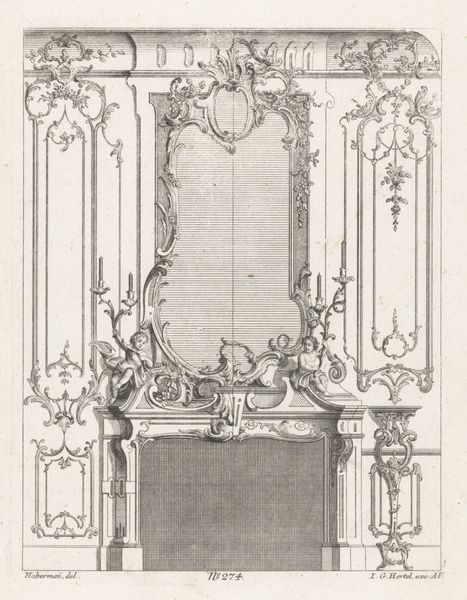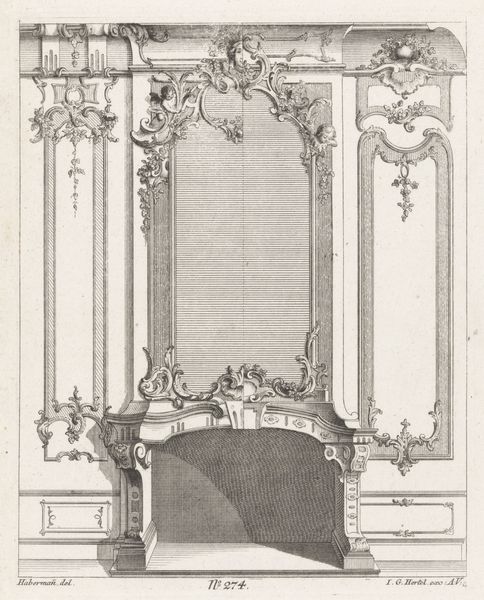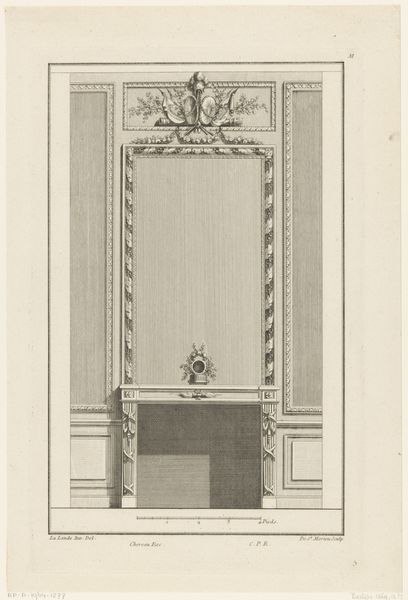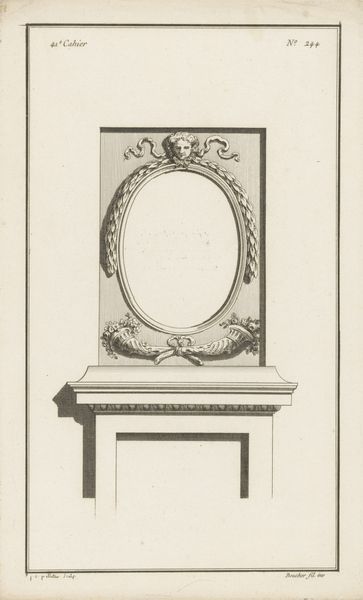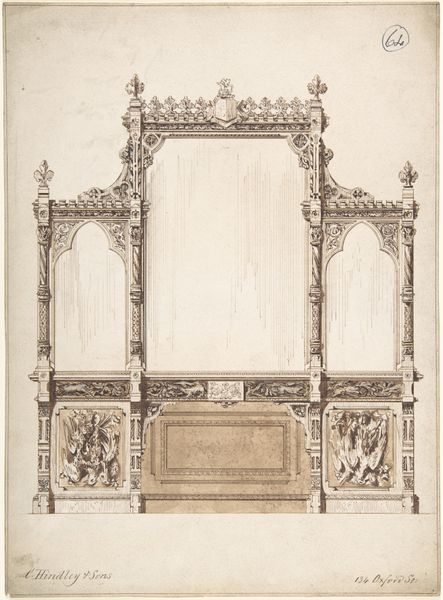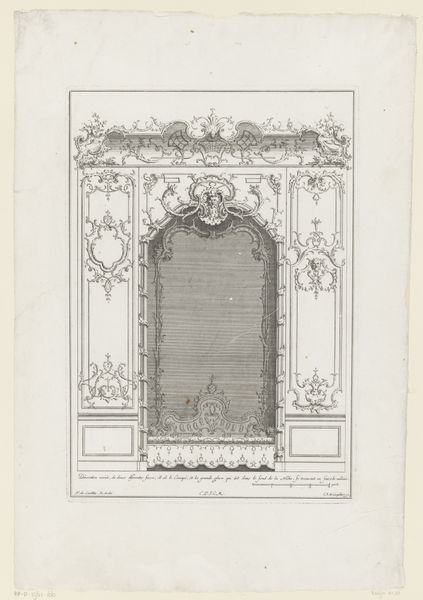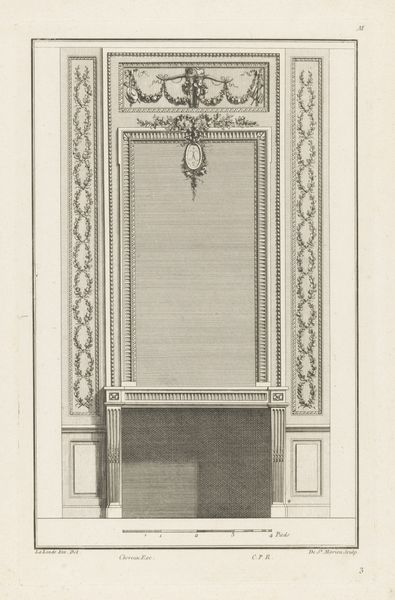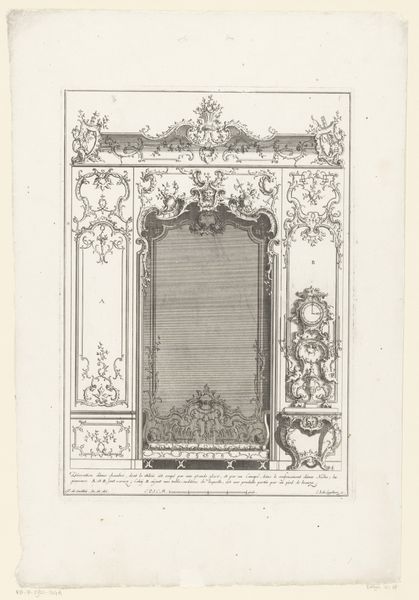
Dimensions: height 315 mm, width 193 mm
Copyright: Rijks Museum: Open Domain
This print, made by Claude René Gabriel Poulleau in France around 1749, presents a design for a chimney breast, or ‘schouw’ as it’s called in Dutch. The design itself tells us a lot about the values of French society at this time. Notice the Rococo style, with its emphasis on asymmetry and naturalistic ornament. The scene depicted in the cartouche above the mirror indicates that the design is intended for a country house. Aristocrats at this time often retreated to rural estates where they could indulge in pastimes such as hunting, symbolized here by the inclusion of animals. We see a drawing not just for an architectural feature but for a lifestyle. The print itself speaks to the developing institutions of art and design. Poulleau was not necessarily commissioned to produce this design for a specific client. Instead, the print would have circulated amongst architects and wealthy landowners, offering inspiration for their own projects. Such prints played a crucial role in disseminating taste and architectural knowledge. Historians use sources such as letters, diaries, and architectural treatises to understand the social and cultural meanings embedded in artworks like this. By doing so, we can begin to understand the values and aspirations of the society that produced them.
Comments
No comments
Be the first to comment and join the conversation on the ultimate creative platform.
